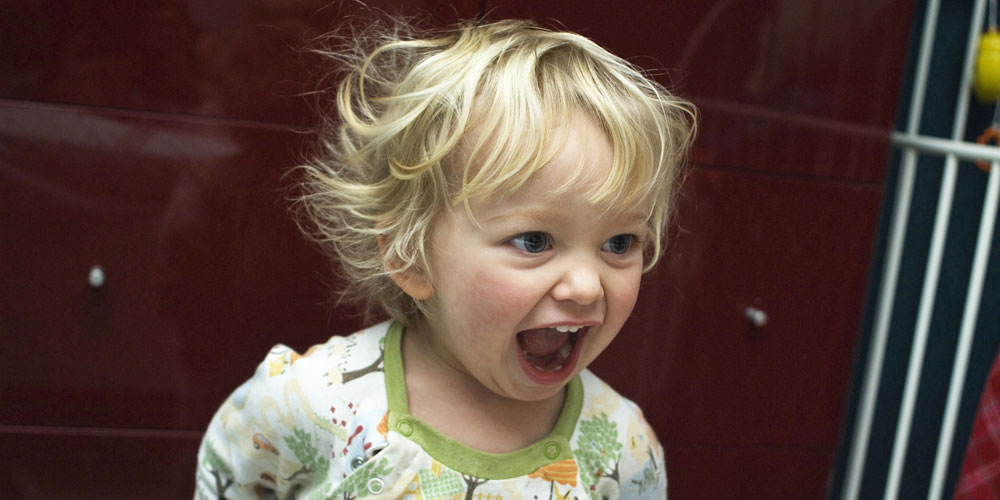New law should also lay down common obligations
By Simone Schmollack

The Bundestag and Bundesrat want to adopt new custody this month. An automatic common custody is also provided for illegitimate children. Journalist Simone Schmollack is critical of this: she demands not only common rights, but also common obligations for parents.
Many mothers and fathers wish for it. Experts like family lawyers welcome it. Most politicians are ready to work together Custody of to create illegitimate children. And yet the federal government’s bill is controversial.
Without a doubt, he wants to respond to the changing realities of life for many parents. A third of all children are now born out of wedlock. According to forecasts, it could even be half of all in the coming years Be children. Many parents live together without marriage certificates.
Nevertheless, they are committed to joint responsibility for their child, as a study by the Ministry of Justice shows. And 62 percent of them apply for an appointment with the youth welfare office shortly before or after birth in order to record this legally.
But the study also says that a third of parents don’t want that. It is usually the mothers who reject joint custody. They often justify this with partnership problems. This also means that both partners no longer have anything in common. Or has never connected. The study concludes that such couples have joint custody "less recommendable" be.
What does that mean for the everyday life of such parents? Parents would have to come to an agreement at all costs, some politicians, lawyers and above all father associations demand – because of the child. That sounds good at first. Why shouldn’t the father take care of his child in the same way??
Experience shows, however, that hardened disputes are in many cases not about the child, about caring for the daughter or son, who keeps the mother and father alive despite the separation. But that power games are played. It is not uncommon for one side to try to control the other – through the child.
Children feel nothing more confusing and destructive when mother and father quarrel to the knife. Children do not relate to themselves so much when parents literally fight each other over the offspring.
When the automatic custody law comes into force, courts will increasingly deal with endless relationship dramas. Already now they have to "dirty laundry" to wash. And this is exactly what the legislature wanted to prevent when the mother started the custody leaving.
Why the swing from one extreme to the other? It is good and right to meet those unmarried parents and especially fathers who look after their children with the best of consensus, regardless of whether they live together or not. Today, as in the past, shared custody remains unsuitable for problematic parent constellations. It is an illusion that disputed mothers and fathers could be forced into their duties ex officio.
That is why it should be possible to revoke a common custody – and not only in exceptional cases. Because a third of unmarried parents, who are declared to lack the will to work together to promote the best interests of their children, is no small size.
For example, a third of the separated fathers pay no, too little or only irregular maintenance. In such cases, youth welfare offices step in and grant advance maintenance payments, which they have to laboriously get back from their fathers. From a legal point of view, custody and maintenance are two pairs of shoes. They are dealt with separately in the courtroom.
But that doesn’t mean that one cannot become a touchstone for the other. For example, why should anyone who is in default of maintenance without a plausible reason continue to be able to insist on their custody? Perhaps it would help if the law established not only common concern but also shared obligations.
Simone Schmollack (Dietl) Simone Schmollack, Born in Berlin in 1964, is an editor at "daily newspaper" in Berlin and author of numerous books, including "Cuckoo children. cuckoo parents", "German-German relations. Love between east and west" and "Back then after the GDR. Farewell and departure stories". She is primarily concerned with issues at the interface of politics, business and privacy. She studied German, Slavic and Journalism in Leipzig, Berlin and Smolensk.
RELATED ITEMS
-

More and more fathers are fighting for custody of their children – and winning – upbringing
Four months. This is the longest time Heath Eckstein, 47, a Virginia police officer, has ever been separated from his 5-year-old daughter Kora….
-

What is the defiance phase for in children? Baby and family
When children become defiant, it strains the nerves of the parents quite a bit. What the little ones are learning in this phase I don’t want to go to bed yet! -…
-

Desire to have children despite handicap (archive)
Society generally welcomes the fact that people will eventually want to have children. Get on the other hand…
-

Raising children: children, parents – parenting styles
Every child is different and every child reacts differently in certain situations. It is important to understand the child’s personality right from the start…
